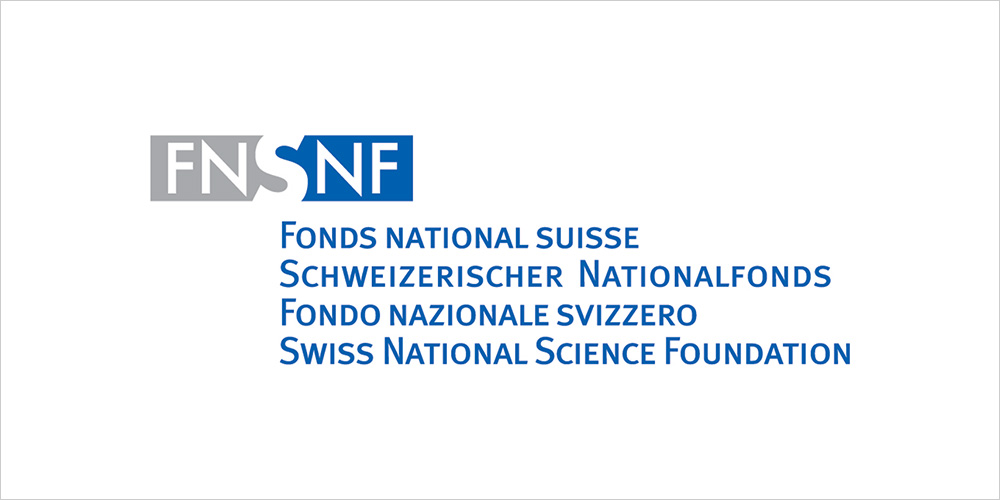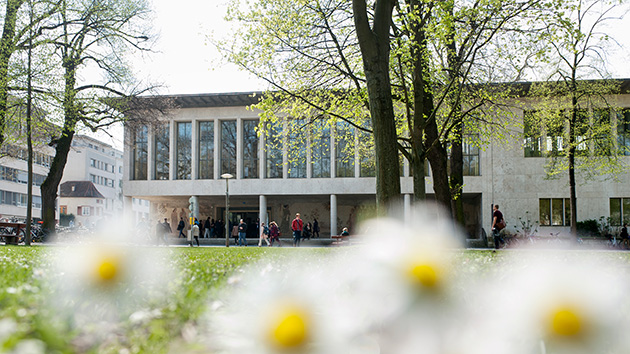National Project Funding

The Swiss National Science Foundation (SNSF) is the most important Swiss institution for the promotion of scientific research and promotes research in all scientific disciplines on behalf of the federal government. Through project funding, it enables scientists to carry out research projects on their own responsibility on topics and research objectives of their choice. The SNSF is committed to ensuring that research can develop under the best conditions and can network internationally.
Project and Program Funding by the Swiss National Science Foundation (SNSF)
Projects of independent basic research
Project funding for independent basic research is aimed at all researchers working in Switzerland. The grants cover direct research costs such as salaries of staff (except for salaries of applicants), material resources, travel expenses, as well as the production costs for scientific book publications that are published digitally and open access. Submission deadlines are April 1 and October 1.
National Centres of Competence in Research (NCCR)
The NCCRs are aimed at established researchers in Switzerland who wish to implement long-term research projects on topics of strategic importance. The management of each NCCR is located at a university or other high-profile research institution. An NCCR must be supported by one or more home institutions.
National Research Programs (NRP)
The NRPs are aimed at researchers in Switzerland who wish to investigate topics of national importance. The topics of the individual programs are specified by the Federal Council.
Investigator Initiated Clinical Trials (IICT)
IICT is aimed at researchers who wish to conduct an industry-independent, investigator-initiated clinical trial. Support is provided for studies that address a documented and unmet medical need and are of importance to patients, but are not the focus of industry.
Innovation Promotion
Innovation Projects Innosuisse
The Swiss Agency for Innovation Promotion Innosuisse offers start-up coaching and training and promotes science-based innovation projects between companies and research partners.
BRIDGE
BRIDGE is a joint program of the SNSF and Innosuisse that addresses the interface between basic research and science-based innovation. The submission of project proposals via mySNF includes two funding opportunities:
- BRIDGE Proof of Concept is aimed at young researchers who want to develop an application or service based on their research results. Projects can address any type of innovation from any research area.
- BRIDGE Discovery is aimed at experienced researchers who want to explore and implement the innovation potential of research results. Only technological innovations that also have a societal and economic impact will be funded.
Spark
The Spark funding instrument is intended to test or develop unconventional or novel scientific approaches, methods, theories, standards and ideas within a short period of time. Spark is aimed at all researchers with a doctorate or comparable qualification. Applications are evaluated in a double-blind process: the evaluators do not know the identity of the applicants and can focus entirely on the idea of the project. Applicants can apply for between CHF 50,000 and 100,000 for projects lasting between six and twelve months and must start within three months of the funding decision.
Use-inspired basic research
The SNSF funds basic research, but not applied research for immediate commercial exploitation, but it does support research that is related to practice and is associated with scientific knowledge gain. Accordingly, researchers have been able to declare their projects submitted to the SNSF as «use-inspired» since 2011. The SNSF provides further information on the page Use-inspired basic research.
Infrastructure funding from the SNSF
FLARE – Funding LArge international REsearch projects
FLARE supports the development, construction, maintenance and operation of instruments for large international experiments in particle physics, astrophysics and astroparticle physics. FLARE grants are intended to enable researchers from Switzerland to participate in these experiments. FLARE applications must be directly scientifically related to (reflect) one or more research activities supported by SNSF grants.
International SNSF Programs
SOR4D - Solution-oriented research for development programme
The SOR4D programme, a funding scheme launched by the SNSF and the Swiss Agency for Development and Cooperation (SDC), promotes cooperation between researchers in Switzerland and in developing countries as well as with practitioners on the ground. It advocates a solution-oriented approach aimed at contributing to the sustainable development goals and to poverty reduction.
SPIRIT – Swiss Programme for International Research by Scientific Investigation Teams
The SNSF's SPIRIT program strengthens the exchange of knowledge between Swiss researchers and researchers from selected countries that receive development aid. SPIRIT expands the opportunities for Swiss researchers to collaborate with many countries worldwide. It supports research projects with clearly defined objectives, submitted by excellent research consortia from two to four countries. SPIRIT proposals are open to researchers from all disciplines; the choice of topic is free. Evaluation takes place in two stages, and project outlines can be submitted at any time. Research proposals can only be submitted by invitation after the project outline has been approved. We recommend that the principles of the Global Research Partnerships Alliance be taken into account when designing the application. The selection process is extremely competitive, as only twelve projects are funded per year.
Bilateral programs of the Swiss Confederation
The bilateral programs of the Swiss Confederation are aimed at promoting and strengthening scientific cooperation between Switzerland and non-European countries with high or promising research potential. For the period 2017-2020, joint calls for Joint Research Projects (JRPs) will be launched with Argentina, Brazil, China, India, Japan, Russia, South Africa and South Korea. The JRPs allow researchers in Switzerland to address specific research questions together with researchers from the partner countries. The projects usually last 3-4 years. Research costs similar to those of SNSF project funding are financed. The SNSF organizes the calls together with a partner organization in the country concerned. The successful projects are jointly supported by both countries, with each organization funding the researchers in their own country. The calls take place irregularly and are often thematically limited, with topics selected based on their relevance to the two countries involved in each case.
COST – European Cooperation in Science and Technology
COST is an intergovernmental framework program for European cooperation in science and technology and allows the coordination of nationally funded research at the European level. COST funds trans-European and thematically open networks between scientists and researchers from all fields of research. These networks (COST Actions) support the international coordination of nationally funded research. Before submitting an application via mySNF, the SNSF must be contacted: cost@snf.ch.
ERA-NET
The goal of ERA-NET is to further develop and strengthen the coordination of national and regional research programs through two specific actions:
- «ERA-NET Actions» provides a framework for entities establishing public research programs to coordinate their activities, for example by developing joint activities or supporting joint calls for transnational proposals.
- «ERA-NET Plus Actions» provides additional EU funding for a limited number of applications with high European added value to facilitate submission between national and/or regional programs.
Research groups interested in participating in ERA-NET initiatives are invited to contact the relevant divisions of the SNSF.
WEAVE / Lead Agency (SNSF)
A Weave or Lead Agency application can be submitted by researchers in Switzerland together with researchers from a country with which the SNSF has concluded an agreement. Multilateral Weave agreements are currently possible with Belgium, Germany, Croatia, Luxembourg, Austria, Poland, Slovenia and the Czech Republic. Bilateral Lead Agency agreements are possible with France, State of Sao Paolo, South Africa and South Tyrol. Only applications with a common research question and a common research plan can be submitted. The project must be designed in such a way that the project parts in the individual countries do not represent independent projects and therefore cannot be carried out separately.
-
University of Basel Grants Office


